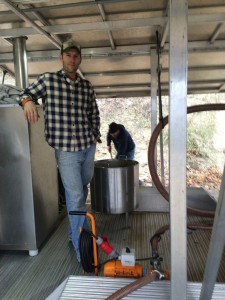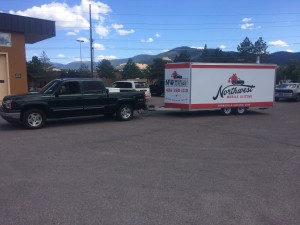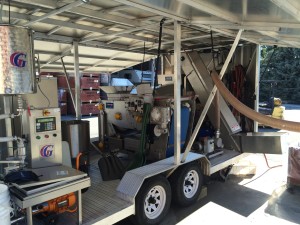Podcast Summary
Milk Price Controls: Unintended Consequences: Price controls can lead to unintended consequences, such as market flooding and price crashes, despite good intentions to support farmers and ensure food security.
Government intervention in the market, specifically price controls, can have unintended consequences. This was exemplified in the 1976 milk price control experiment led by President Carter. With good intentions to support farmers and ensure food security, Carter proposed raising the price of milk by six cents per gallon. However, this intervention led to a surplus of milk as farmers produced more to capitalize on the higher prices. The market was then flooded with milk, leading to a surplus and eventual price crash. Economist Andy Novakovic, who witnessed this disaster firsthand, emphasizes the importance of stability over intervention and the potential risks of playing with price controls.
Government intervention in milk market during economic instability: Government bought milk products for storage to support farmers and stabilize milk prices during economic instability, but handling and storage complexities made it challenging to implement effectively.
During times of economic instability, the government may intervene in markets by manipulating supply and demand to stabilize prices. Using the example of the milk market in the 1970s, the government attempted to raise milk prices by buying large quantities of milk products, such as cheese, butter, and non-fat dry milk, for storage. This approach allowed the government to support farmers and stabilize the market without directly controlling milk production. However, this method was not without challenges, as perishable items like milk require specialized handling and storage, making it more complex for the government to implement effectively.
Assessing Cheese Quality for the USDA: The USDA's cheese buying program requires rigorous quality checks to ensure only top-tier cheese is purchased, with former grader Bob Ashebrock spending decades testing and tasting cheese using a cheese trier against USDA grade A cheddar standards, leading to an increased need for more graders due to the program's success.
The USDA's cheese buying program, which involves setting a high price for cheese to create a price floor, requires stringent quality checks to ensure only top-tier cheese is purchased. Bob Ashebrock, a former USDA cheese grader, spent decades testing and tasting cheese for the government using a hollow rod called a cheese trier to assess flavor, moisture level, and other factors against USDA grade A cheddar standards. With the program leading to an influx of cheese, Bob and his team were overwhelmed and needed to hire more graders to keep up with the demand. Despite the challenging job, Bob, who was not picky about eating cheese, enjoyed his role in maintaining the high standards for the government's cheese purchases.
Government cheese storage crisis in the 1980s: During the 1980s, U.S. government's dairy support program led to an oversupply of cheese, resulting in costly storage in old mines and a significant expense for taxpayers.
During the 1970s and 1980s, the U.S. government's dairy support program led to an unprecedented accumulation of cheese in various storage facilities, including old limestone mines. The challenge of getting people to work in these long-term positions led to difficulties in dating, and the storage issue resulted in caves being filled with cheese, creating a significant expense for taxpayers. By the early 1980s, the government was spending around two billion dollars a year on the program and storing one in every four pounds of the country's cheddar cheese. The press conference featuring agriculture secretary John Block holding up a giant hunk of cheese as a national emergency further highlighted the issue. This story illustrates the consequences of government intervention in markets and the unexpected challenges it can bring.
Government's Cheese Surplus and Its Impact: The government's surplus of cheese in the 1970s and 80s led to a significant influence on American culture through widespread availability in institutions and comedic references.
The government's surplus of cheese in the 1970s and 80s presented a challenging economic situation. Releasing the surplus onto the market could crush the cheese industry, while finding a market for it abroad was difficult due to cheese's perishability. The government's solution was to donate the cheese to food banks and other organizations, but distributing large quantities of cheese proved to be a logistical challenge. The cheese was processed, repackaged, and eventually given away in large quantities, earning the name "government cheese." This moment marked a significant influence on American culture for those who grew up during that time. The cheese giveaway led to the widespread availability of government cheese in various institutions and even became a comedic reference in popular media.
The unintended consequences of government cheese: Government intervention in markets, despite good intentions, can lead to costly and unintended consequences. Consider all potential outcomes before intervening.
Government intervention in markets, even with good intentions, can have unintended and costly consequences, as exemplified by the history of government cheese. Originally made from high-quality cheese, the government's attempt to provide a social safety net resulted in surplus production and billions of dollars spent on a product that was ultimately perceived as subpar. Economist Andy Novakovich emphasizes the importance of balancing social and political goals with economic feasibility and being aware of the potential unintended consequences. The story of government cheese serves as a reminder of the complexities of government intervention and the importance of considering all potential outcomes.
Exploring Fresh Perspectives in Storytelling and Conversations: Unexpected formats and angles can lead to successful storytelling and engaging conversations, as demonstrated by the unique methods used to sample cheese and podcasts like NPR's Invisibility, Code Switch, and It's Been A Minute.
Unexpected formats and perspectives can lead to successful storytelling and engaging conversations. This was illustrated in the discussion about the unusual methods used to sample cheese, as well as the continued popularity of podcasts like NPR's Invisibility, Code Switch, and It's Been A Minute, which tackle complex topics like storytelling, race, and democracy from unique angles. Despite the seemingly mundane subject matter or the sense of deja vu in the current political climate, these podcasts have managed to captivate audiences and spark meaningful conversations. So, whether it's a barrel of cheese or the latest news cycle, there's always something new and interesting to discover if we approach it with an open mind and a willingness to explore fresh perspectives.









